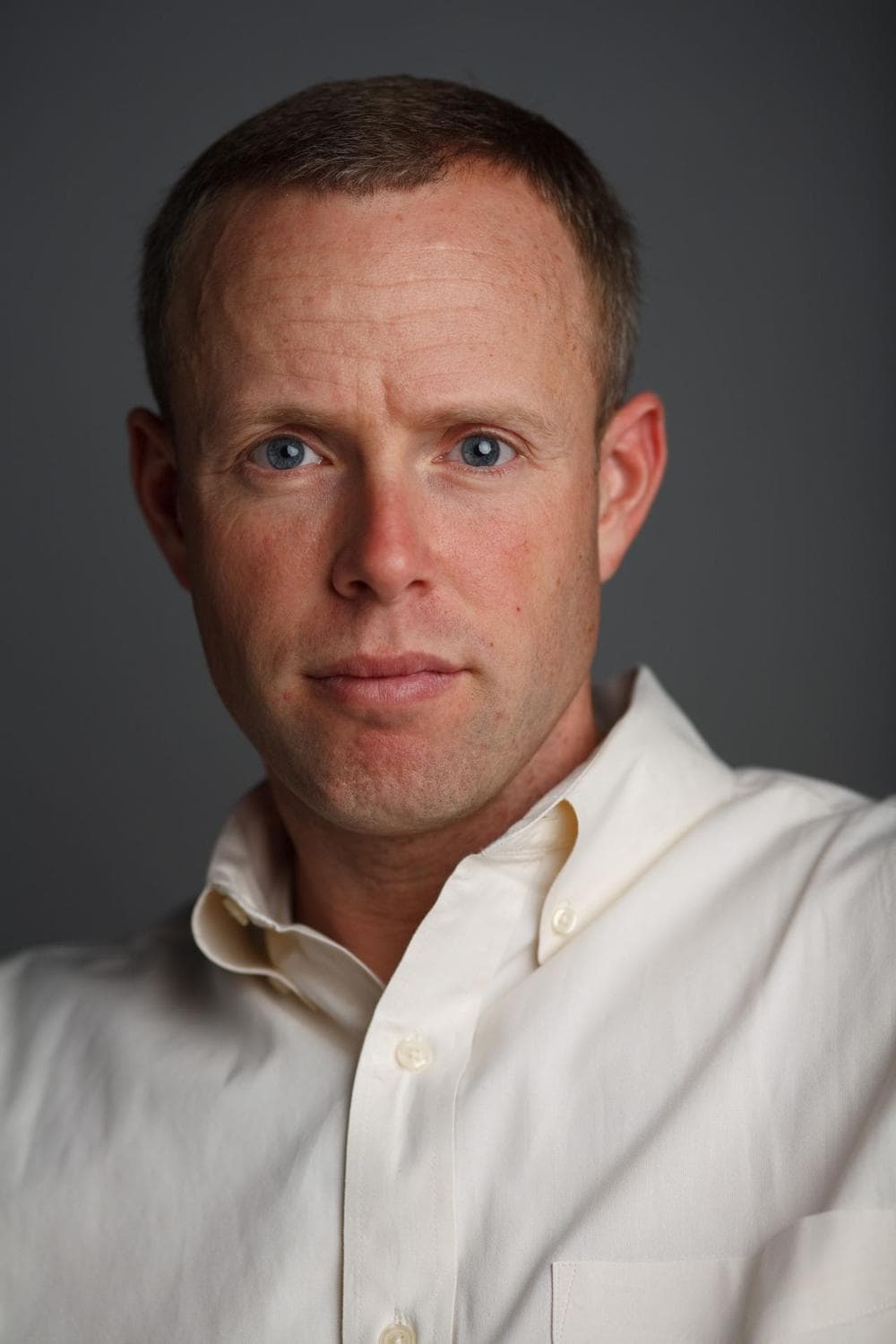Advertisement
Defining The Deep Pain PTSD Doesn’t Capture
ResumeAn estimated 22 veterans kill themselves in the U.S. each day. And suicide among men and women on active duty hit a record high last year — 349. As veterans and researchers try to figure out why, there's growing interest in a condition known as "moral injury," or wounds to a veteran's spirit or soul from events that "transgress deeply held moral beliefs and expectations."
The concept has helped former Marine Corps Capt. Tyler Boudreau understand years of pain that medication and therapy for PTSD didn't address. He tells his story, somewhat reluctantly, from the living room of his blue clapboard home in Northampton, Mass.
'This Is What Occupation Looks Like'
Boudreau arrived in Iraq in the March of 2004 at the age of 33 shortly before four American contractors were killed in Fallujah. His unit moved into position for a planned assault on the city.
"We were always getting shelled, constant rocket and mortar attacks," Boudreau explained. "An IED, the roadside bomb, blew up right next to my vehicle and I was involved in some firefight that was pretty, you know, pretty intense."
The constant shelling wore on Boudreau. But the daily duties of war, what he did to Iraqis, also took a toll on him.
"It’s like this accumulation of presence and searching and patrolling and detaining people who, maybe they’re guilty, maybe they're not," Boudreau said, his voice building. "Bringing them back and putting them in locked rooms or in cages or putting bags over their heads and flex cuffs on the hands and all of these things that we do, day after day after day. This is what occupation looks like. Searching this house, searching that house, patrolling through the neighborhoods, questioning people."

Boudreau has thought a lot about one evening when, as darkness fell, dozens of Marines pulled up to a farm house, ordered the family outside, swept their home and found nothing.
"In the frame of war, it seems so benign, it seems so like, what happened there that’s so bad?" Boudreau asked himself. "But all I could think about is eight trucks pulled up in the night with machine guns and bristling with rifles and guys from another country pouring out in armor and knocking on the door and asking, 'Can we come in and search your house at dinner time?' ... And how we wouldn’t even let a policeman come in our house without a warrant."
The Damage PTSD Doesn't Capture
Boudreau returned to the U.S. after seven months in Iraq, just as his beloved Red Sox reached the World Series. His team would win for the first time in 86 years. Boudreau didn’t watch a single game.
"When I first came back I was a mess. I found it very difficult to focus, to manage my emotions," Boudreau said as he rubbed his forehead. "I’m like, falling into extreme rages. I wouldn’t shower for weeks, I wouldn’t leave the house if I could avoid it. Every little kind of interaction was a high strain for me."
A doctor diagnosed Bourdreau with post-traumatic stress disorder, or PTSD. Boudreau says it was correct, but incomplete. It didn’t explain his deep pain.
"I’m talking about the guilt one feels when you perpetrate violence against another one. Even if it’s justified. Even if it’s a clear cut show down and you won and nobody would ever, like, fault you," he explained. "And yet, just for humanity’s sake, you feel some guilt. This goes on for a couple of years and then someone comes along and says 'moral injury.' And I say, 'Yeah that makes so much more sense here.' Now we have a way of talking about the moral impact, not strictly the traumatic impact."

Jonathan Shay, a psychiatrist at the Department of Veteran's Affairs' clinic in Boston, coined the phrase moral injury in the mid-1990s. He was looking for a way to describe damage to a veteran's spirit or soul that PTSD didn’t capture.
Boudreau says moral injury can happen in many circumstances. He’s haunted by the memory of radio calls he’d get from snipers, requesting permission to shoot.
"The person they’re shooting is potentially digging a roadside bomb," Boudreau said, describing the type of calls he would get. "They’re far enough away looking through a scope at night to where there could be question. I can’t see it any better than they can, they’re the ones with the scope. I’m on a radio two miles away. That's when I would find they'd be interested in calling me, so I would generally defer to their judgment. If it looks like a roadside bomb is being dug in then yes, you have permission to engage."
Starting The Conversation
Boudreau never heard the shots he approved, never saw blood, never heard screams and at the time thought he was just doing his job. He was, after all, a Marine at war.
"It doesn’t occur to me until later to say, 'What about that? What’s your role? What’s your responsibility? What’s your accountability in that?,'" Boudreau said. "A life was taken, somebody was killed and you said, 'Go ahead and do it.' That kind of troubling debate, internal debate, is what we’re talking about with moral injury."
Boudreau wonders if the guy who pulled the trigger — or his own commander — ever ask themselves these same questions.
"To what extent do you have responsibility for me giving permission to a soldier to shoot a person in Iraq?" Boudreau said, then paused to look at me and through me to all Americans. He tugged at the cuffs of his flannel shirt and turned his gaze to pictures of his three sons, their school art projects, maps and mementos that paper his living room walls.
"I don’t want to push an answer, I want to push a discussion among civilians, professionals, politicians, wherever, somewhere, please," Boudreau said with urgency in his voice. "Have a conversation about these kinds of scenarios."
Because, Boudreau says, he sees a link between moral injury and record rates of suicide.
"I mean, what is that about?" he asked. "People are coming back from a non-war, war, without all of the major traumatic events of World War II, and yet we have soldiers coming back, killing themselves, suicide after suicide, why? This question’s being asked, but this moral injury, there’s a connection there. There’s something that’s bothering a lot of soldiers about this."
The Department of Defense is spending $1.5 million on research to study possible treatments for moral injury. But Boudreau says recognizing another combat injury comes at a difficult time for the military. Already, 20 percent of troops who served in Iraq and Afghanistan are expected to have PTSD or major depression.
"Twenty percent is a number the military is not prepared to lose. They are not going to take a 20 percent cut in manpower, it’s not going to happen," Boudreau argued. "So what I’m describing here is two trains on the same track, heading for each other.
Boudreau experienced the collision himself, as a commander, when individual Marines requested leave for a mental health evaluation.

"They’d come back with a discharge. One after another this was happening and suddenly, as a commander I’m like, 'Woah, I’m losing essential personnel here,'" he recalled. "I care about my Marines, but at the same time I care about the Marines that are staying, too, and I want them to be able to survive the operations that we’re going to deal with and it’s going to be compromised by the fact that I just lost two of my machine gunners and now I have inexperienced machine gunners manning the guns."
Boudreau eventually left the Marines, too. Soon after he returned from Iraq he chose not to re-enlist. He and his wife divorced. He took a job that didn’t work out. Now, at age 42, he is getting a PhD in communications at UMass Amherst. And he says he’s healing. Boudreau and a buddy visited Iraqi refugee camps in Jordan. He changed his diet, started a garden and rode his bike across the U.S.
"You find metaphors for yourself, every hill will be that. Every revolution of my pedals will be that," Boudreau said, churning his arms as he spoke. "I'm coming back home, this is my fresh attempt at coming home. Biking by itself is not healing, it’s the will to make it healing that makes it healing."
Writing is Boudreau’s main occupation and therapy. He’s published one book about his experience in Iraq, has another under review and is working on a novel. He still falls apart occasionally, finding demons he thought he’d chased out. A reminder, he says, that none of us can forget the wounds of war.
This program aired on June 24, 2013.
